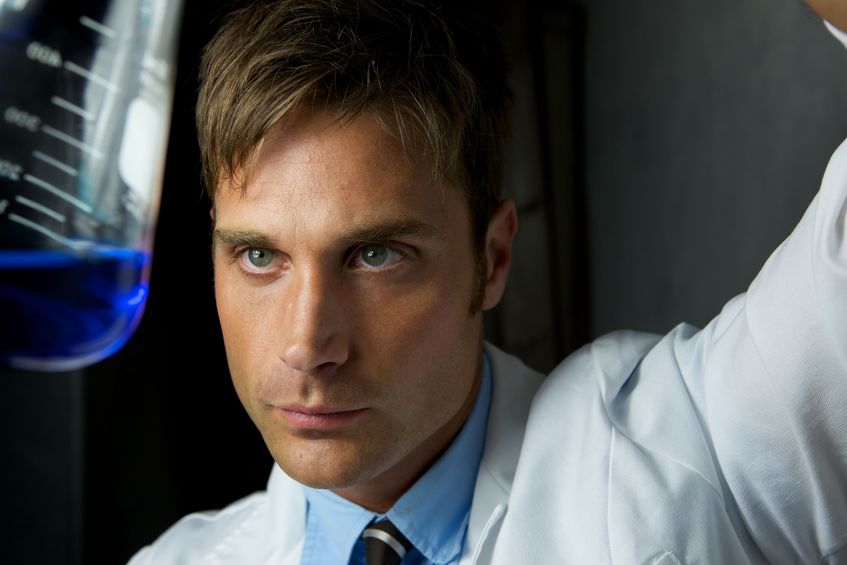 Today, it seems like cancer is all around us. And since we’re still learning about this mysterious disease, it appears as if every product carries with it certain cancer-related risks. Of course, not everything causes cancer. Certain habits, environmental conditions and consumer products are riskier than others. For instance, tobacco should be avoided at all costs, as scientists have deduced that it is a leading cause of cancer. This year, nearly one-third of all cancer patients will be smokers.
Today, it seems like cancer is all around us. And since we’re still learning about this mysterious disease, it appears as if every product carries with it certain cancer-related risks. Of course, not everything causes cancer. Certain habits, environmental conditions and consumer products are riskier than others. For instance, tobacco should be avoided at all costs, as scientists have deduced that it is a leading cause of cancer. This year, nearly one-third of all cancer patients will be smokers.
But sometimes cancer seems to appear out of nowhere. You can do everything right – exercise, eat well, avoid smoking etc. – and still end up with this disease. And once you do have it, you may miss the initial symptoms. Or even worse, your doctor might misdiagnose your condition, leading you to miss much needed treatment and potentially lose years off your life.
Definition
What is cancer? According to the American Cancer Society, it is a disease (or a group of diseases to be accurate) that literally has been around for ages. The first known account of cancer can be found on the so-called Edwin Smith Papyrus, a text which outlines various cases and treatments. Ultimately, the papyrus concludes, “There is no treatment.”
Luckily, we’ve come a far way since 3000 BC. Now we know, for instance, that cancer refers to the growth and spreading of abnormal cells throughout the body. The process of spreading, if left untreated, can happen rapidly and lead to death. On the whole, in the US, 41 percent of men and 38 percent of women become sick with cancer at some point in their lives.
Misdiagnosis
As the second leading cause of death in the US, cancer is clearly a prevalent illness that demands treatment. If caught early enough, cancer can be treated and a person can live far longer now than, say, in 3000 BC, or even the past few decades. But if left to grow out of uncontrol, cancer is more likely to kill the patient.
For this reason, it is somewhat disturbing that misdiagnosis is so common. According to a study published several years ago, about 12 million adults are not properly diagnosed by their doctors on a yearly basis. That means at least five percent of adults are misdiagnosed. And more recently, a study concluded that even more misdiagnoses occur. The Mayo Clinic found, earlier this year, that nearly 20 percent of the patients seeking a second opinion at the clinic found that the primary care physician was wrong in the initial diagnosis. In short, medical misdiagnosis is all too common.
As for cancer misdiagnosis: the BMJ Quality and Safety Journal estimates that nearly 28 percent of cases are misdiagnosed.
Types
Each type of cancer comes with certain potential pitfalls that lead to misdiagnosis. Lung cancer, the most prevalent type, usually entails chest x-rays, lab studies, pulmonary function tests and a sputum cystology. A medical professional might fail to order certain tests or even fail to catch certain signs on the x-ray.
Breast cancer, affecting one in eight women in the US, generally requires a mammography, which is 84 percent accurate. But of course, 16 percent of cases can go the other way, turning out to be either false negatives or false positives. Both of these can lead to major issues. With a false positive, a patient can sometimes undergo years of unnecessary treatment, and even get chemotherapy. And with false negatives, much-needed treatment can be delayed. Both lead to outlandish expenses and psychological turmoil.
Early Stages
Cancers in the earlier stages might be harder to spot because symptoms are not severe, and thus doctors might not jump to check for cancer. As you age, your body might exhibit signs that appear normal but are actually cancer symptoms. In breast cancer, for instance, you might notice redness, swelling or changes in texture on your breast.
These symptoms might occur simply because you’re getting older or perhaps because you’re pregnant. But they could also indicate early stages of breast cancer. For this reason, it’s important to be diligent about checking yourself and asking your physician questions.
Compensation
Whatever type of cancer you have, misdiagnosis (or delayed diagnosis) can cause you great psychological, financial and physical injury. To that end, you might be able to pursue compensation. However, not every misdiagnosis constitutes negligence or causation. Thus, you might want to seek out the help of an attorney with experience in cancer misdiagnosis cases. With their aid, you can chart the best path forward and potentially receive just remuneration for your injuries.